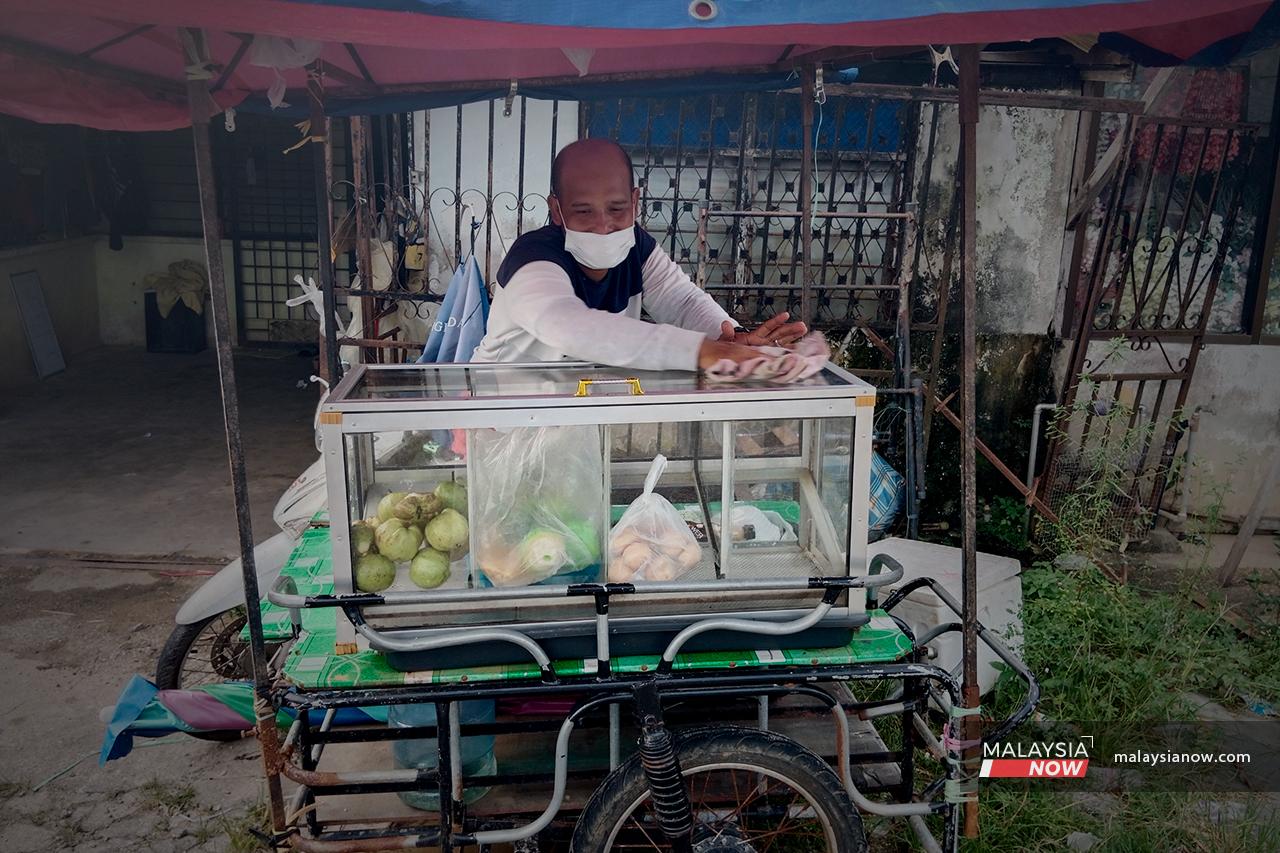Stateless and struggling with three children to raise
While others his age are climbing the social ladder, Borhan can do little better than selling rojak at the side of the road.
Just In
Just in front of his house in Rantau Panjang, Kelantan, Borhan (not his real name) is hard at work, packing the things he will need for another day of business at his roadside stall where, for years, he has sold fruit rojak to passers-by.
His exact location varies according to where the crowds happen to be, but every day, rain or shine, Borhan sets up his stall and gets to work.
There is not much else he can do to earn a living, as at 37 years of age, he has neither citizenship nor any form of legal identity.
Borhan is one of tens of thousands who were born and raised in Malaysia but are not officially recognised as citizens.
Not only are his day-to-day activities disrupted, his family members also bear the burden brought on by his lack of citizenship.
Each time school reopens for a new academic year, his three children struggle to enrol as they need their parents’ identity cards to complete the paperwork.
“But I don’t have an IC,” he told MalaysiaNow. “The school has to ask for a guarantor like their grandfather or uncle.”
While Borhan’s father is a Malaysian citizen, his mother is a Thai national.
He is considered stateless as their marriage was not registered in the country.
While he works as hard as he can, Borhan is unlikely to find a job that can offer his family any more in terms of financial security.
He earns anywhere from RM30 to RM40 a day, selling rojak at his small stall. If he is fortunate, he makes RM900 a month – far below the national poverty line.
He has tried many times to apply for other jobs but is usually taken for a foreigner despite his Malaysian upbringing and fluent Malay.
“My children don’t understand,” he said. “They are all growing up and my fear is that they will keep facing problems in life because their father doesn’t have an IC.
“Maybe one day they’ll want to enrol in university or get married. What if they need their father’s IC? How will I explain?”
MalaysiaNow understands that Borhan’s children have been granted citizenship as he married a Malaysian and their marriage was registered in the country.
But with midlife fast approaching, he frets about how to support his family without citizenship himself.
“I don’t belong to any other country,” he said. “I was born and raised here, and the work that I do is for this country.
“I don’t want to be a citizen of any other country even though it might be easy for me to apply.”
At the moment, Borhan and his family live in a low-cost housing area in Rantau Panjang.
His landlord, who knows that Borhan is stateless, charges him as little as possible for rent.
“I pay RM270 a month,” Borhan said. “Even that, I sometimes pay late because I don’t sell very much at the stall. It depends on how many tourists there are.”
Many of the family’s possessions have also been damaged or destroyed by the frequent floods in the area.
Borhan had applied for flood aid but was sidelined again and again due to his lack of citizenship.
“Just to buy one thing takes a long time because I need to save up,” he said.
“But when our possessions were destroyed in the floods, we were immediately rejected because I did not have an IC.”
Borhan has tried applying for citizenship through the National Registration Department but has yet to receive a response.
“I’m not hoping for much,” he said. “If possible, some help for my application.
“I have a wife and children to take care of. With an IC, I could make a better life for them.”
Subscribe to our newsletter
To be updated with all the latest news and analyses daily.
Most Read
No articles found.
